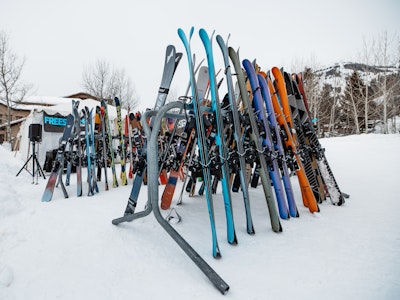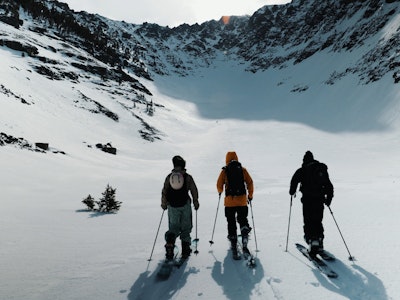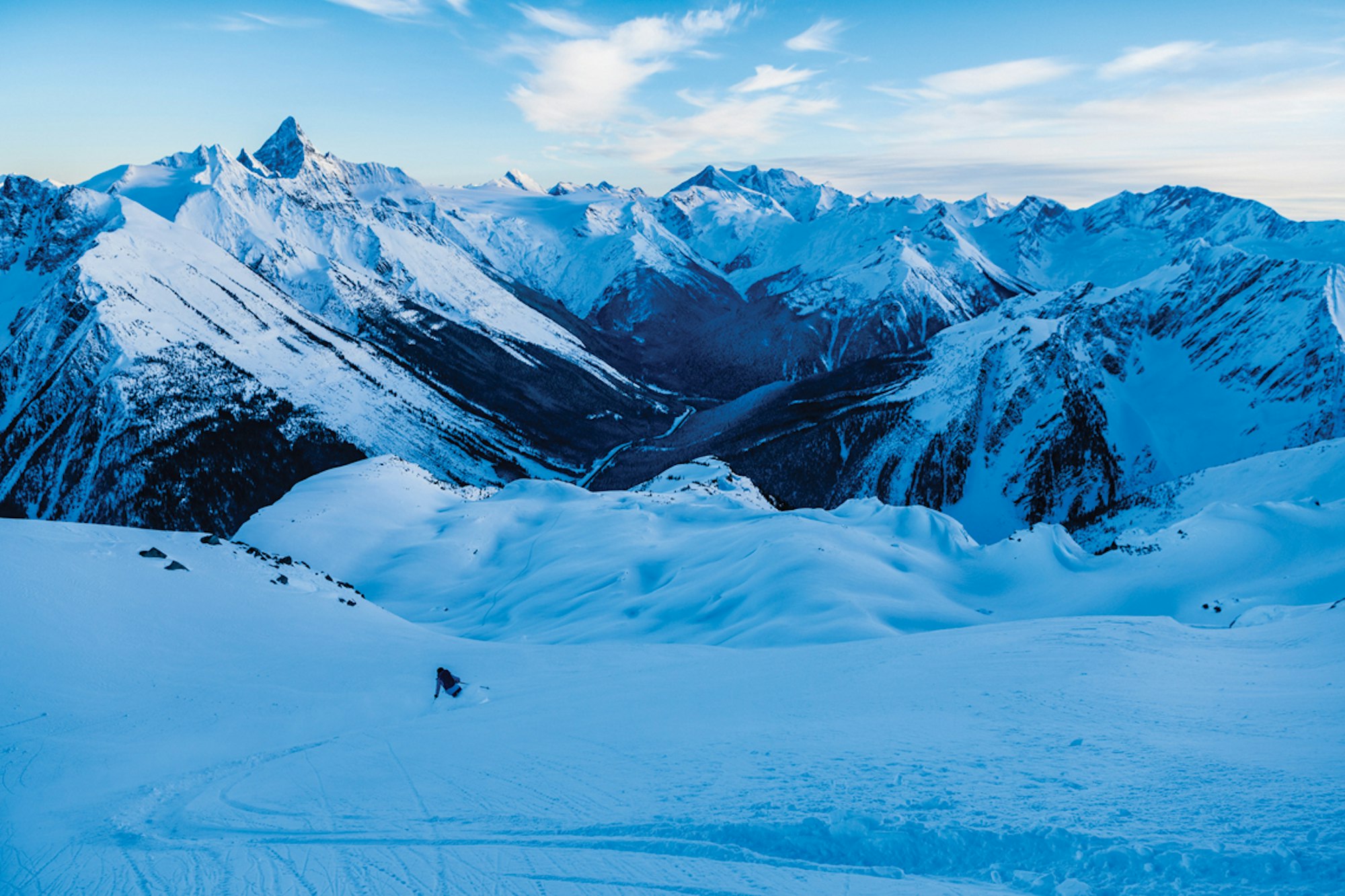An entrepreneur, activist and voice for women in snow sports, the Revelstoke-based athlete has been evolving both the landscape of skiing and her own career for a decade. But success never just fell in her lap.
WORDS • CASSIDY RANDALL | PHOTOS • MATTIAS FREDRIKSSON
My phone beeps on the kitchen table. “Do you want to go touring tomorrow?” texts my friend, pro skier Leah Evans. The sun has long since gone down, sacrificed at 2:30 p.m. to the hungry silhouette of Revelstoke’s mountains and our unfortunate location on the edge of the Pacific time zone. At the very least, the interminable dark makes for an excess of time dedicated to mission planning.
It will be a big day, she warns, at least 1,500 meters of breaking trail through the deep snow that hasn’t let up all week. But the reward is the trees, ancient and giant. She’s wanted to get back to this zone since she filmed Treeline, Patagonia’s artful 2018 ski film about the connections between humans and forests.
The next morning, we park Evans’ aging hatchback at the Nordic ski lot and skin along the road to a summer trailhead lying dormant under the weight of winter. As we start up Mount Begbie’s formidable flank, I ply Evans for stories on her life and career trajectory, even if I’ve heard them before. It’s a unique one in the ski industry, combining entrepreneurship, creativity and feminism with a hard-charging freeski career that began on her native Red Mountain in Rossland, B.C. “I always wanted to be bigger than that place,” she admits. “I’ve always had these big aspirations, and now to see them play out… dreams really do come true. What a lot of people might not understand is how hard I’ve worked for it.”
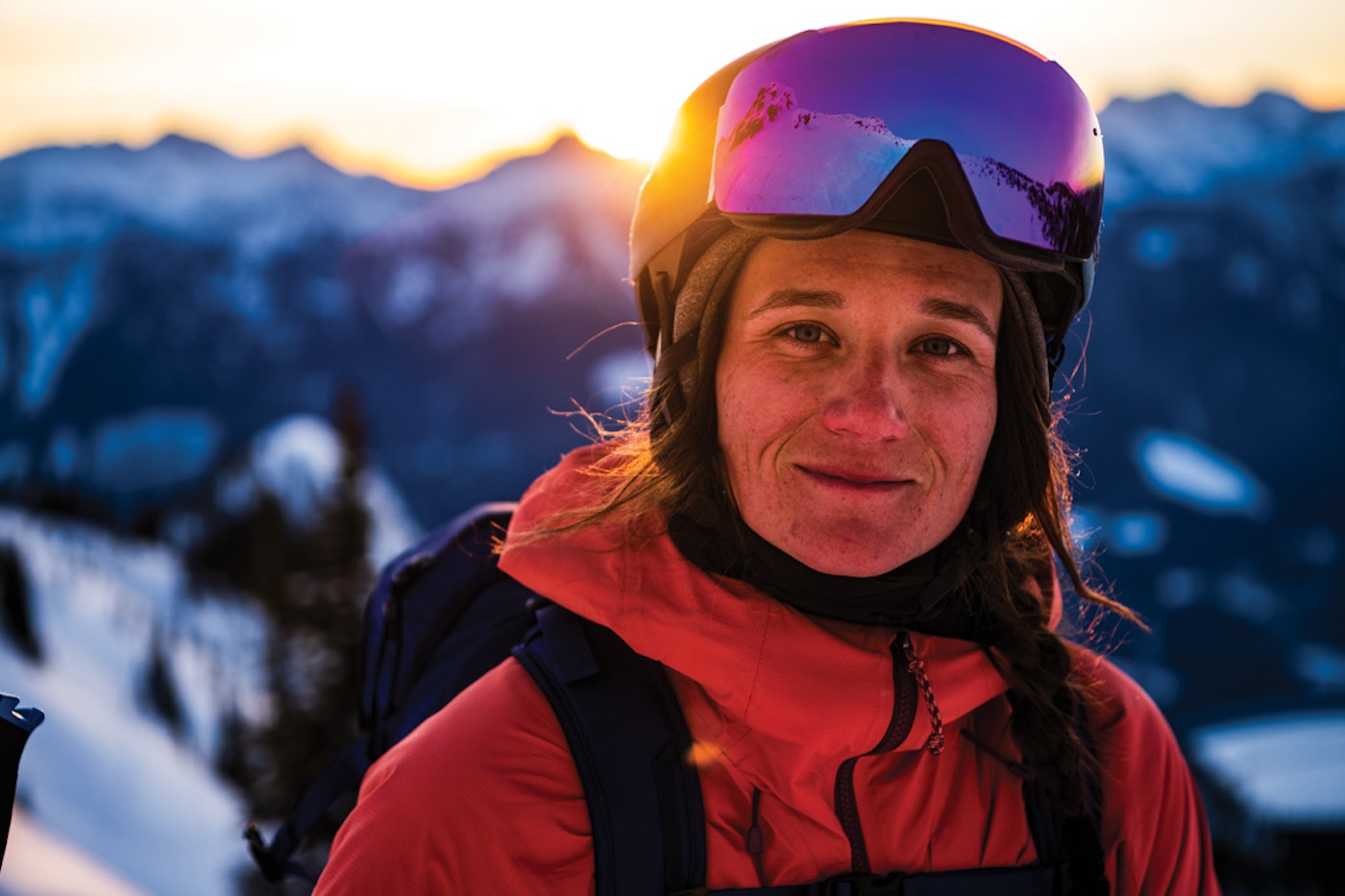
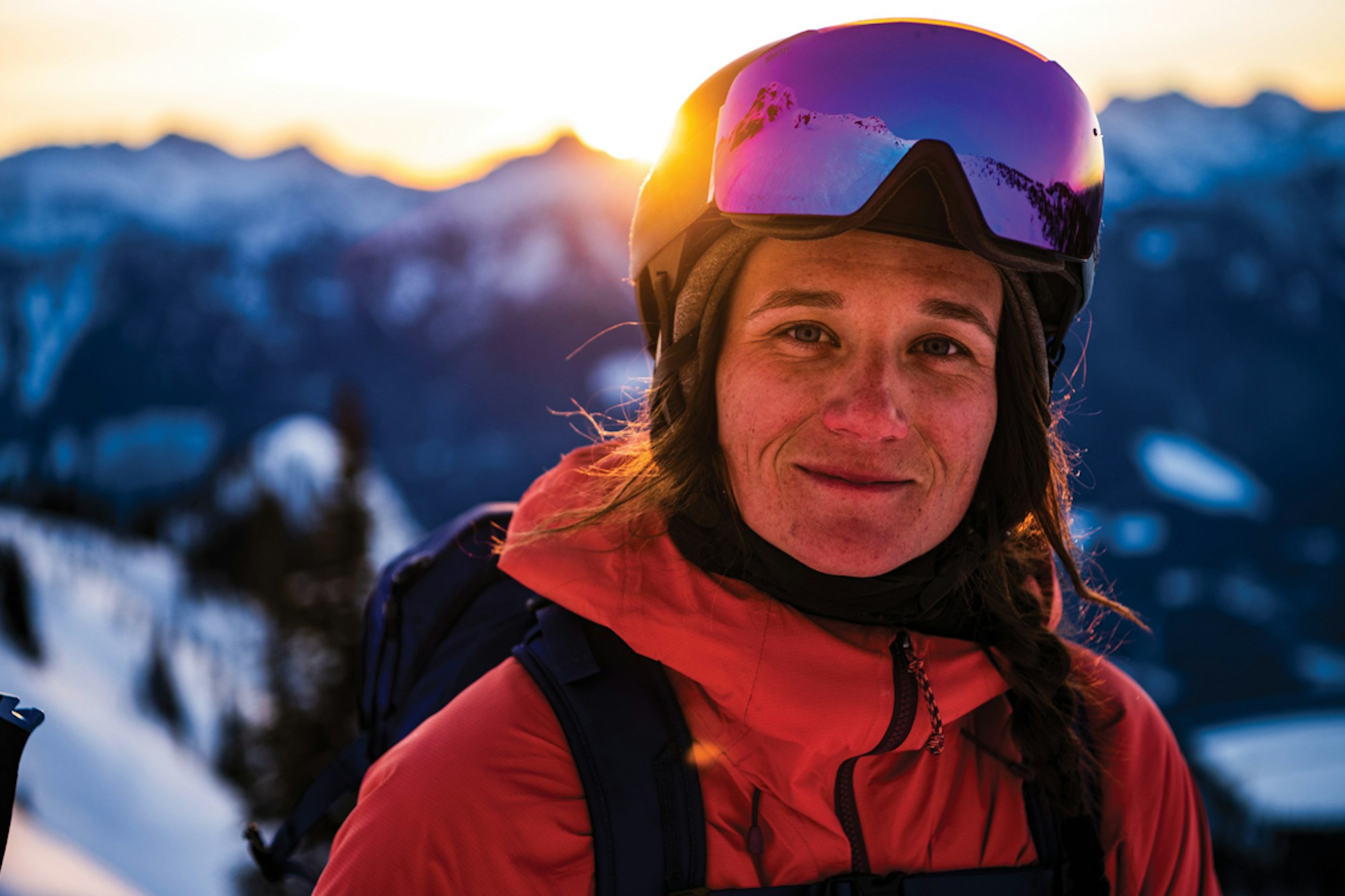
The word “accomplished” is inadequate to describe Evans’ career. The 31-year-old just came home to Revelstoke from a tour of Europe to promote Treeline. She’s on the Patagonia athlete team, and sponsored by Salomon and Smith. She’s been a businesswoman since she was 19, when she started Girls Do Ski (GDS) at the same time she was going through university and making the rounds on the Freeride World Tour (FWT). Her series of female-only ski clinics was a revolutionary phenomenon at a time when the gender equity conversation was merely a blip on the outdoor industry radar. She expanded GDS exponentially over the last decade, and sessions sell out within hours every winter. She’s got a Freeride World Tour win under her belt, and has been featured in major ski media from Sherpas Cinema, Unicorn Picnic and Salomon TV.
“I had been grinding, just working so hard, and wasn’t getting any opportunities. It was like when you work for so long at a job and don’t get a raise,” she recalls. She’d been working nonstop on GDS, competing on the FWT and firefighting in the summers to make ends meet. “I gave up some of my sponsorships. I decided I had to make space for new things to come in.”
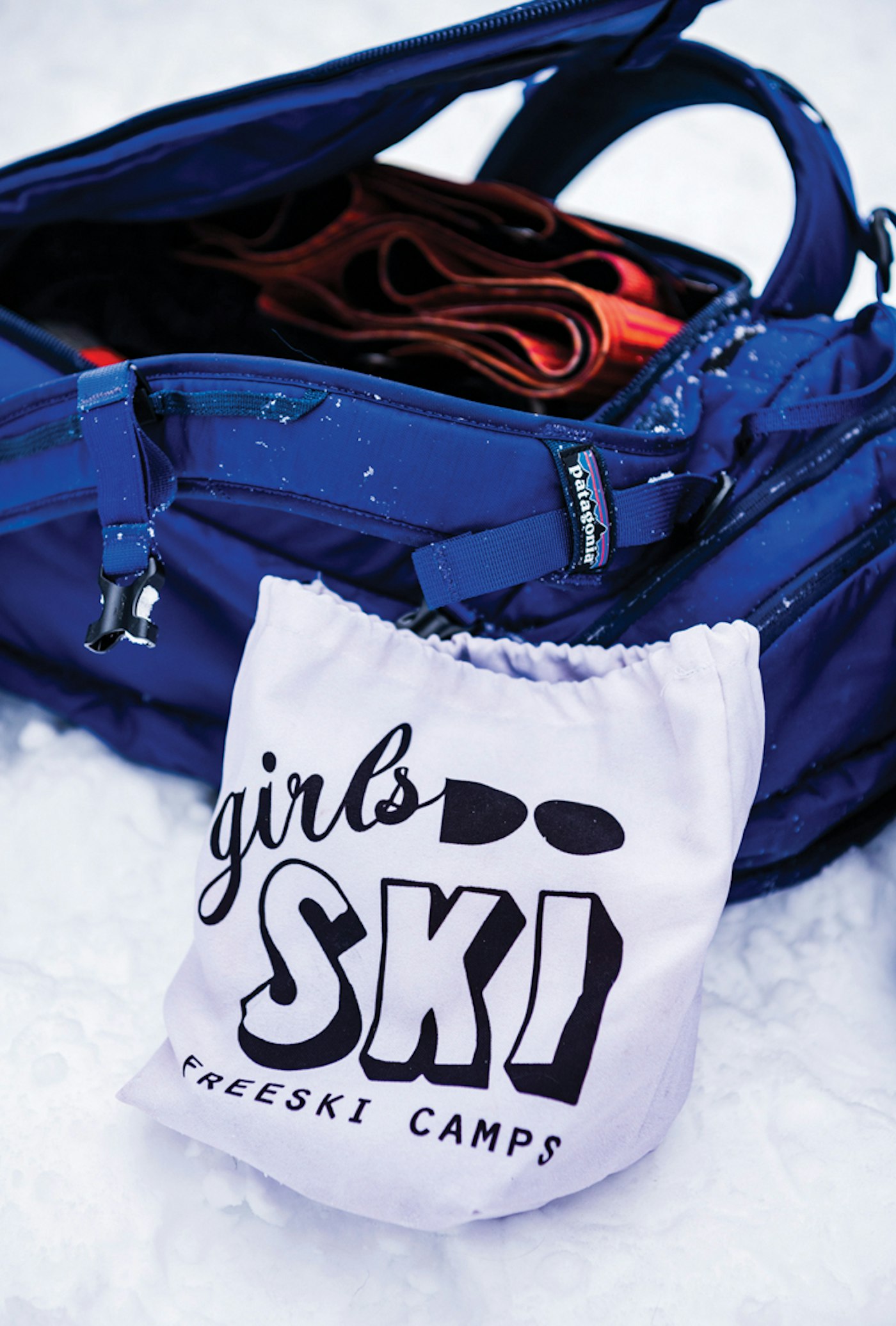
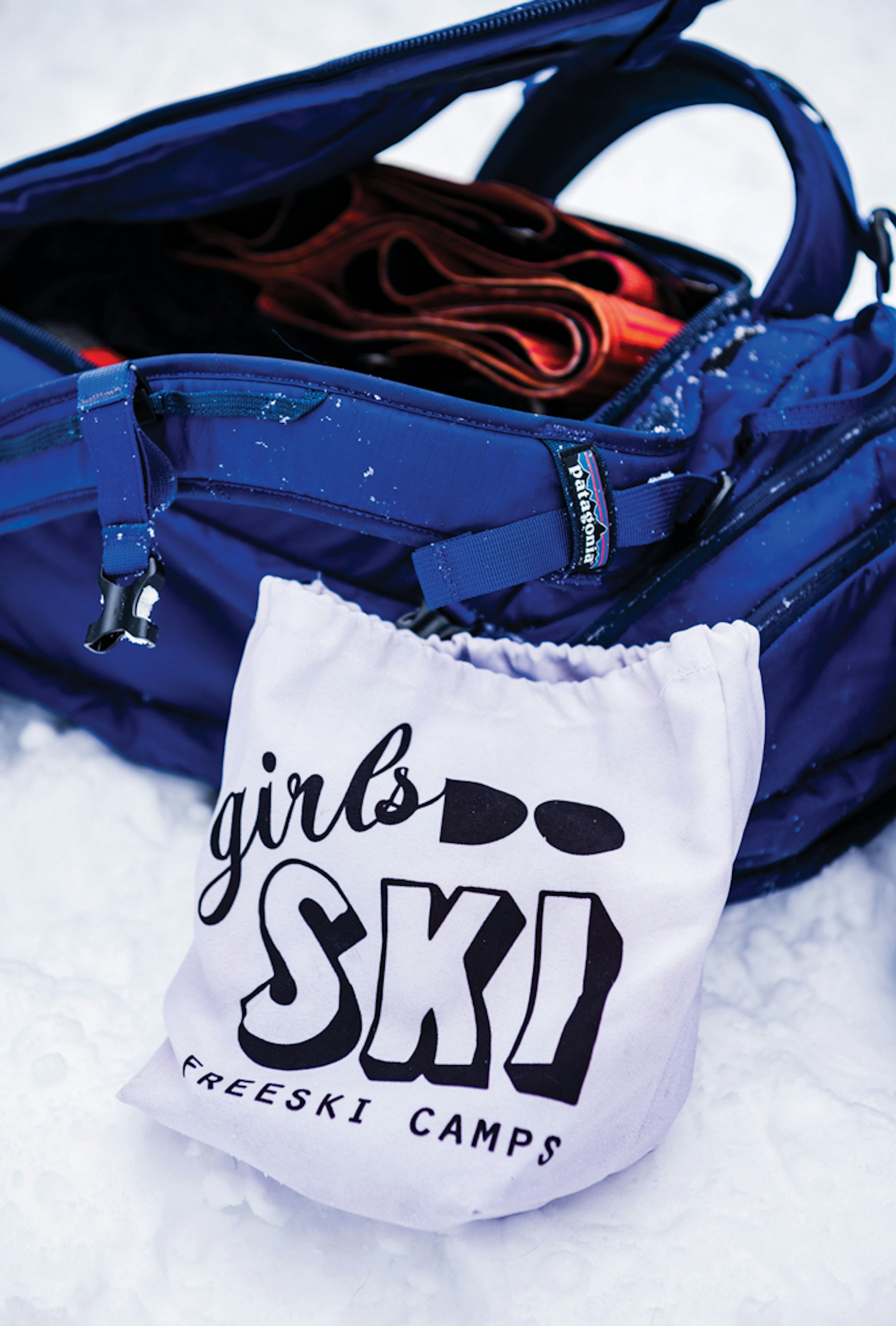
Not long after, she found herself chatting with fellow Kootenay-native Nick Waggoner of Sweetgrass Productions about the proposed ski resort in the Jumbo Valley, which has drawn intense opposition for its threat to the surrounding environment and indigenous Ktunaxa Nation. “That issue had been going on for 30 years,” she says. “We grew up hiking there, it’s tied into our family DNA.” Waggoner was impressed with her knowledge of the area, and brought Evans on board for the film project that became Jumbo Wild, which Patagonia picked up as a massive campaign as their first foray into winter activism; the brand subsequently also picked up Evans.
“It turns out what I made space for was Patagonia, this company I respected so much,” Evans says. “I was beyond rewarded for everything I had worked for.” Patagonia extends its core value of improving the planet to its athlete team, she says, and provides resources for what its athletes want to do individually to make change. In addition, the company wasn’t just interested in developing her as a skier, but encouraging her to evolve as a person. For Evans, known as one of the more expressive, impassioned figures in the ski world who favors projects that transcend traditional ski porn in favor of deeper meaning or connections across issues, the fit couldn’t have been better.
Breaking a skin track through the powder ahead of me, Evans expands on how she loves the concept of creating connections—which is one of her superpowers, although she’s too humble to ever put it like that. It’s what led her to ideate Cabin Jams, a film she co-produced in 2017 with Jamie Tanner that marries music creation with skiing. One of her latest creative ventures, Airplane Mode Camps, uses a four-day backcountry hut hiking trip to blend therapy, comedy and mountains. The point is to disconnect from the constant 24/7 addiction to our cell phones and computers in order to re-connect with the important things: our own thoughts, the feeling of community with other people and nature. In sync with that philosophy, Evans’ GDS camps are driven by the concept of creating connections between female skiers, with the goal of snowballing the female ski platform as a whole.
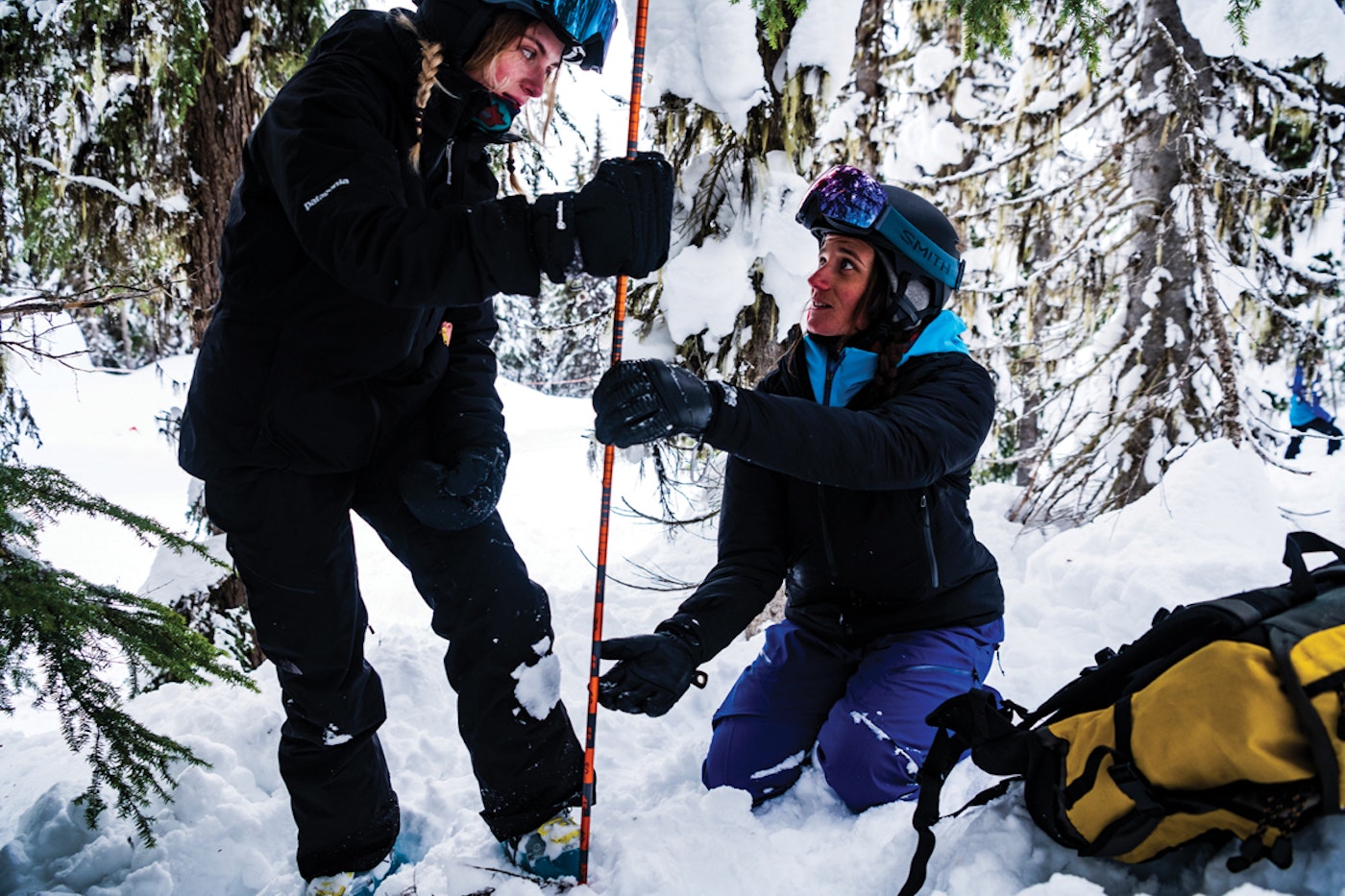
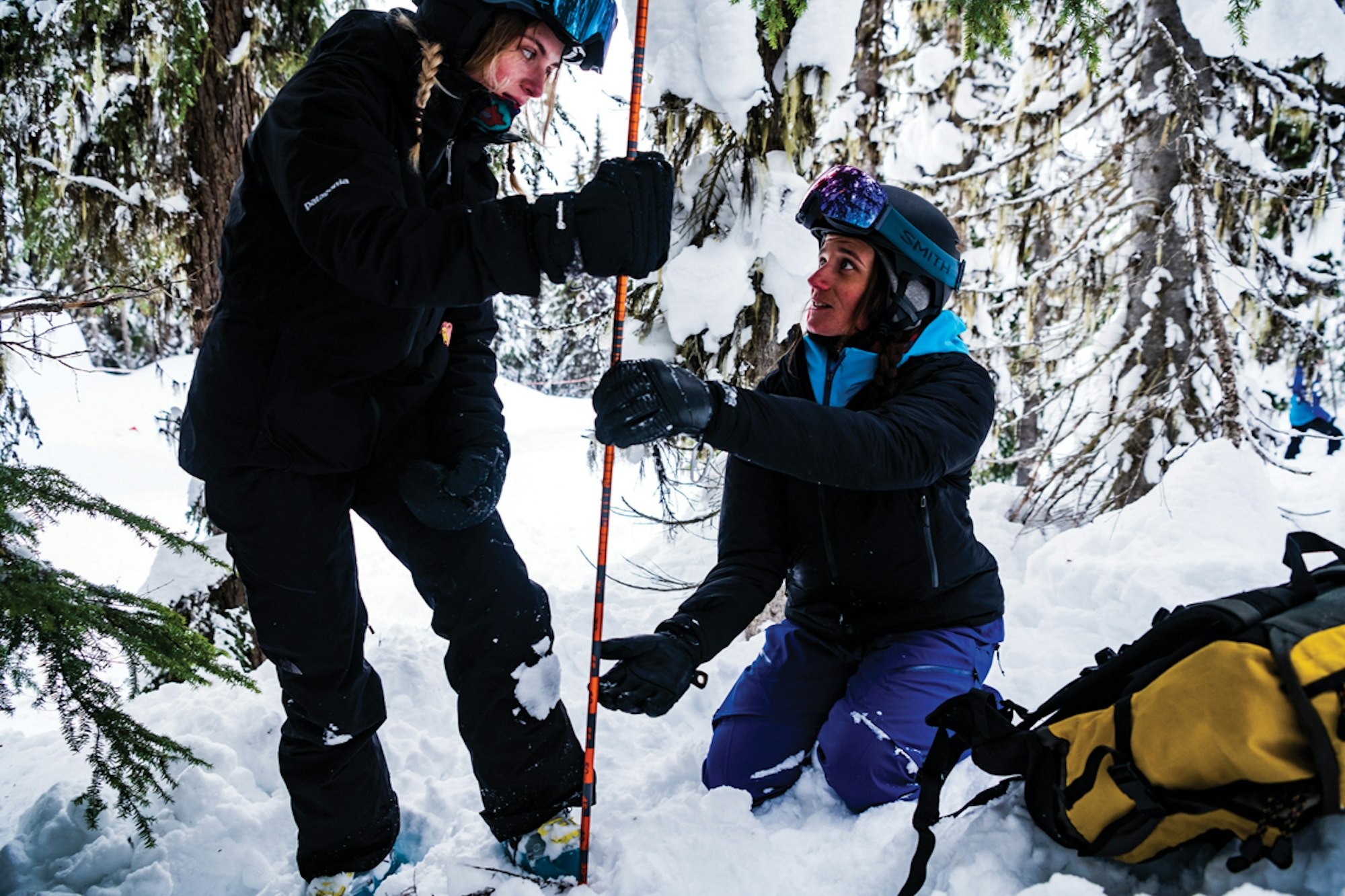
The dual theme of connection and community is why the latest project she’s featured in, Dream Job, celebrates her as “The Community Builder.” Evans is credited with creating one of the strongest women’s ski communities the sport has ever seen through Girls Do Ski. The film is a cutting-edge, humorous celebration of big-mountain female pioneers that also includes Diny Harrison, the first female Canadian mountain guide and Christina Lustenberger, a renowned ski mountaineer with several first descents under her belt. It’s the type of thought-provoking ski media that Evans favors most.
The flakes turn heavy with the warming weather as we reach a grove of elderly cedars on Begbie that tower over their brothers, massive sentinels straight out of Lord of the Rings. We stop underneath one for a snack, huddling close to its colossal trunk while branches farther out shed their snowy burdens. Being in the presence of the titans brings us back to Evans’ role in Treeline. She and director Jordan Manley conceived the idea of a piece on tree skiing around the world a decade ago. The idea evolved as the years went by, and when it was full-fledged, Evans pitched it to Patagonia.
“She came into the project with her heart and mind fully in it,” says Manley, “because she already felt quite connected to the forest.” Evans spends her summers as an Association of Canadian Mountain Guides hiking guide, in equal parts an excuse to expand her knowledge of local flora and fauna, spend as much time in the mountains as possible and share her wonder of the natural world with others. “And whatever she’s put her mind to she’s excelled at, because she follows her heart,” adds Manley. It didn’t hurt that she’s an absolutely beautiful skier, lending the B.C. segment of the film an ethereal quality to match the mythology of the giant cedars.
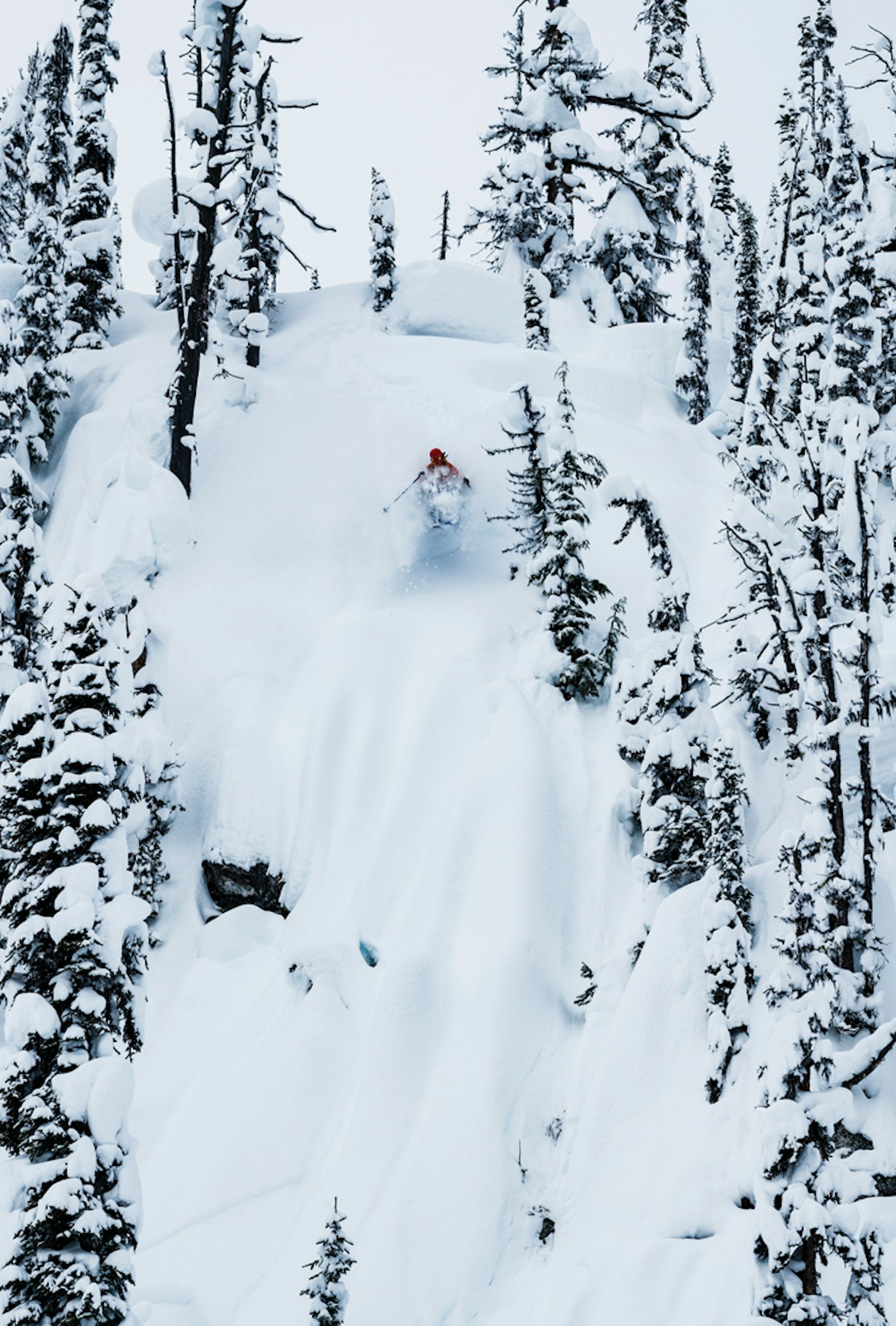
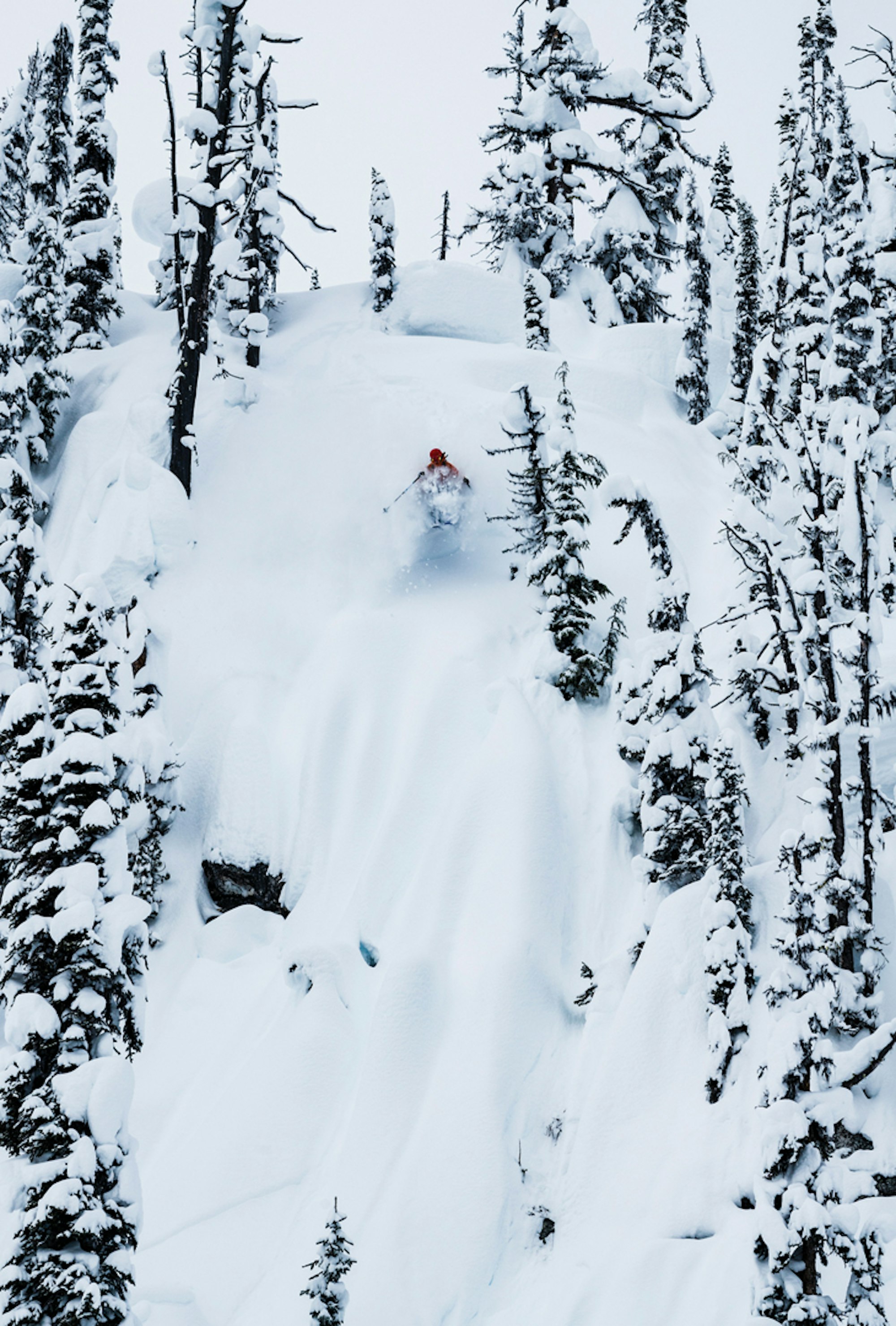
“She’s been one of the more underrated female skiers ever,” says Chris Rubens, another Revelstoke-based pro on the Salomon team with Evans. “There aren’t too many women out there charging those technical pillow lines like she does. She uses the terrain to her advantage. She’s so in control and in the zone that she makes it look easy.”
Before we reach the top of the zone we’re aiming for, the balmy temps and still-falling snow force re-consideration. With small convexes popping, we decide it’s time to rip skins and find the safest way down—which happens to be through a perfect alley of old-growth pillars. Evans leads through the deep with her signature style that Izzy Lynch, fellow pro skier and long-time coach on the GDS team, calls “so strong but incredibly graceful.”
Back at the car, Evans is already planning the rest of her waning afternoon. Energized from the trees and the bottomless turns, she’ll focus on last-minute logistics for upcoming GDS clinics. “She doesn’t want to do what everyone else wants to do. She wants to do it in her way, and a little more creatively,” says Rubens. It’s the perfect summation of the diversity and success of Evans’ hard-won career, and a promise of her trajectory to come. For now, though, Evans is living in the present, fully aware and appreciative of the fact that her dream—that she worked for, set goals for and sacrificed for—has finally become reality.

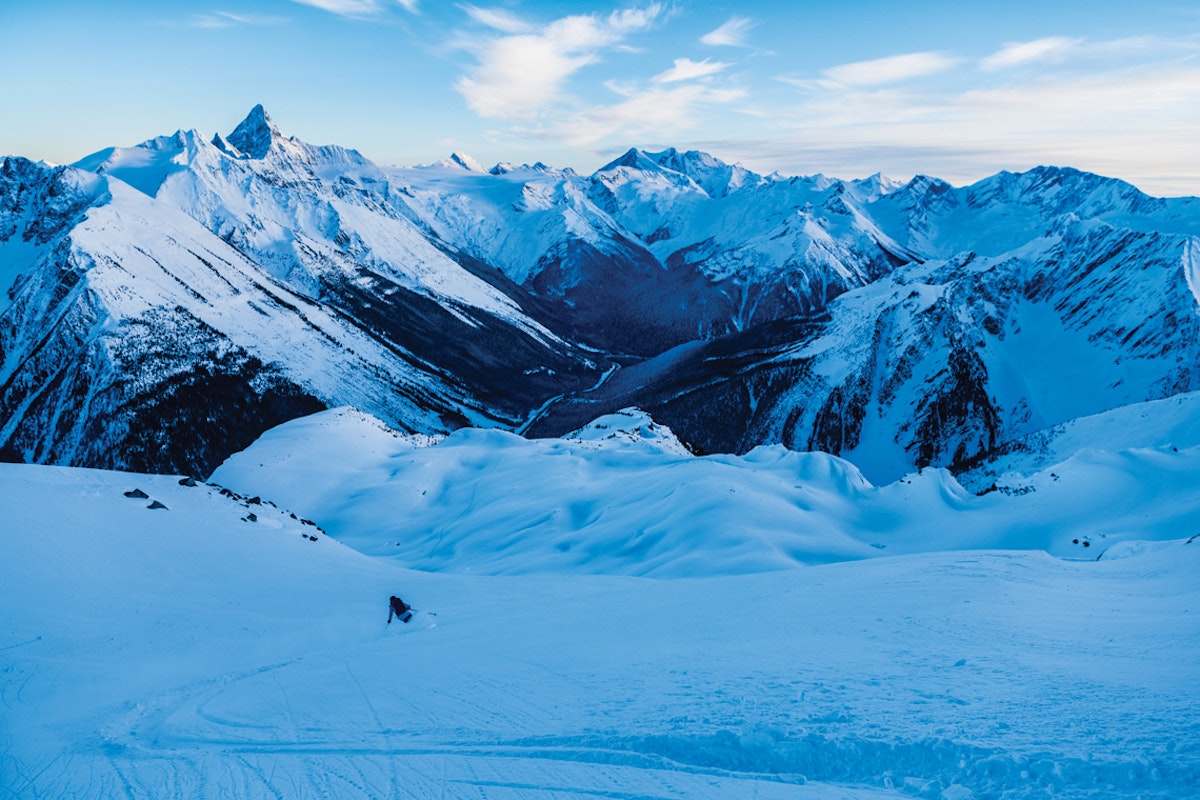
![[GIVEAWAY] Win a Head-to-Toe Ski Setup from IFSA](https://www.datocms-assets.com/163516/1765920344-ifsa.jpg?w=200&h=200&fit=crop)
![[GIVEAWAY] Win a Legendary Ski Trip with Icelantic's Road to the Rocks](https://www.datocms-assets.com/163516/1765233064-r2r26_freeskier_leaderboard1.jpg?w=200&h=200&fit=crop)
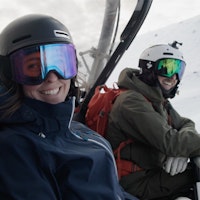
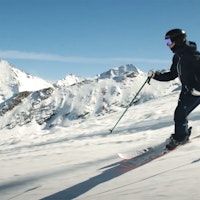
![[GIVEAWAY] Win a Legendary Ski Trip with Icelantic's Road to the Rocks](https://www.datocms-assets.com/163516/1765233064-r2r26_freeskier_leaderboard1.jpg?auto=format&w=400&h=300&fit=crop&crop=faces,entropy)
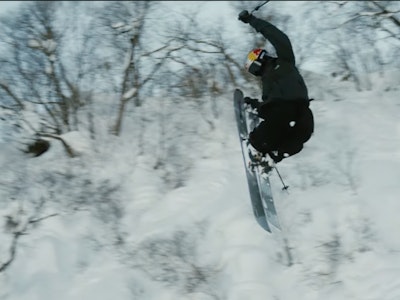

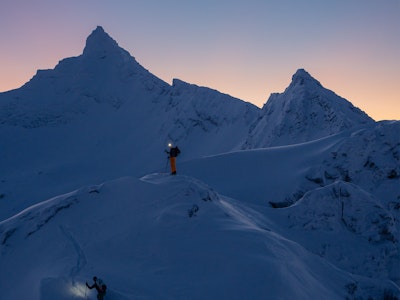
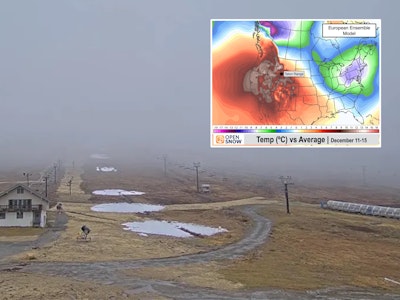
![[GIVEAWAY] Win a Head-to-Toe Ski Setup from IFSA](https://www.datocms-assets.com/163516/1765920344-ifsa.jpg?auto=format&w=400&h=300&fit=crop&crop=faces,entropy)
